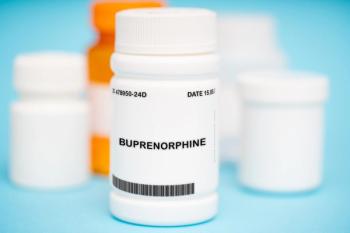
Acne drug program draws mixed reactions
Pharmacy is taking a wait-and-see attitude regarding the Food & Drug Administration's new risk management program designed to enhance the safe use of the drug isotretinoin (Accutane, Roche) during pregnancy. But not all pharmacists think the program is necessary.
Pharmacy is taking a wait-and-see attitude regarding the Food & Drug Administration's new risk management program designed to enhance the safe use of the drug isotretinoin (Accutane, Roche) during pregnancy. But not all pharmacists think the program is necessary.
Isotretinoin is used to treat severe acne; it carries with it, however, a significant risk for birth defects during pregnancy. The new FDA program iPLEDGE requires registration by doctors and patients who agree to accept specific responsibilities before receiving authorization to prescribe or use the drug.
In addition to registering with iPLEDGE, patients must comply with a number of requirements, which include completing an informed-consent form; obtaining counseling about the risks and requirements for safe use of the drug; and, for women of childbearing age, complying with required pregnancy testing. Wholesalers and pharmacies must also comply with the manufacturers' program requirements in order to distribute and dispense the agent.
Philip Burgess, R.Ph., national director, pharmacy affairs for Deerfield, Ill.-based Walgreen Co., said Walgreens intends to participate in the program and is currently working out the implementation details.
However, some pharmacists believe that many of the components in the iPLEDGE program are already in place. "The warnings are already there," said Denise Hayes, R.Ph., owner of Haworth Apothecary, an independent pharmacy in Haworth, N.J. Hayes said that as it stands now, doctors have to apply a yellow sticker to an isotretinoin prescription. That yellow sticker certifies for the pharmacist that the doctor has already reviewed with the patient the guidelines pertaining to the safe use of isotretinoin-including the requirement for a negative pregnancy test. Hayes noted that all the warnings appear on the package insert and the external label.
The yellow-sticker system is part of a risk management program entitled "System to Manage Accutane-Related Teratogenicity," or SMART, created by Accutane's innovator, Hoffmann La-Roche, several years ago. However, the Nutley, N.J.-based drug company has deemed the SMART program a failure due to patients' unwillingness to comply with label warnings on packages. FDA data revealed that for the women who became pregnant during or shortly after isotretinoin treatment, the SMART program had no substantial effect in lowering exposed pregnancies after it was implemented in 2002.
According to the FDA, iPLDEGE is an attempt to build a single program that addresses the need to manage the risk of fetal exposure. The FDA approved the iPLEDGE program under its regulations known as Subpart H, requiring restrictions on the distribution of a drug to ensure its safe use. FDA has issued a public advisory and revised the patient and healthcare provider information sheets in order to inform healthcare providers about iPLEDGE. The agency has also set up a reporting and collection system for serious adverse events whereby all pregnancy exposures to Accutane must be reported to FDA's MedWatch program: (1)-800 FDA-1088 and to the iPLEDGE pregnancy registry at (1)-866 495-0654.
After Oct. 31, 2005, wholesalers and pharmacies will have to register with iPLEDGE in order to obtain isotretinoin from a manufacturer. Beginning Dec. 31, 2005, all patients and prescribers (physicians) must register and comply with requirements for office visits, counseling, and birth control.
The manufacturers participating in the iPLEDGE program include: Roche Laboratories, the innovator company, and three generic firms-Genpharm, Ranbaxy Pharmaceuticals, and Barr Laboratories. A spokesperson for Roche told Drug Topics that the label for branded and generic Accutane is currently being changed to incorporate information about the iPLEDGE program.
Newsletter
Pharmacy practice is always changing. Stay ahead of the curve with the Drug Topics newsletter and get the latest drug information, industry trends, and patient care tips.























